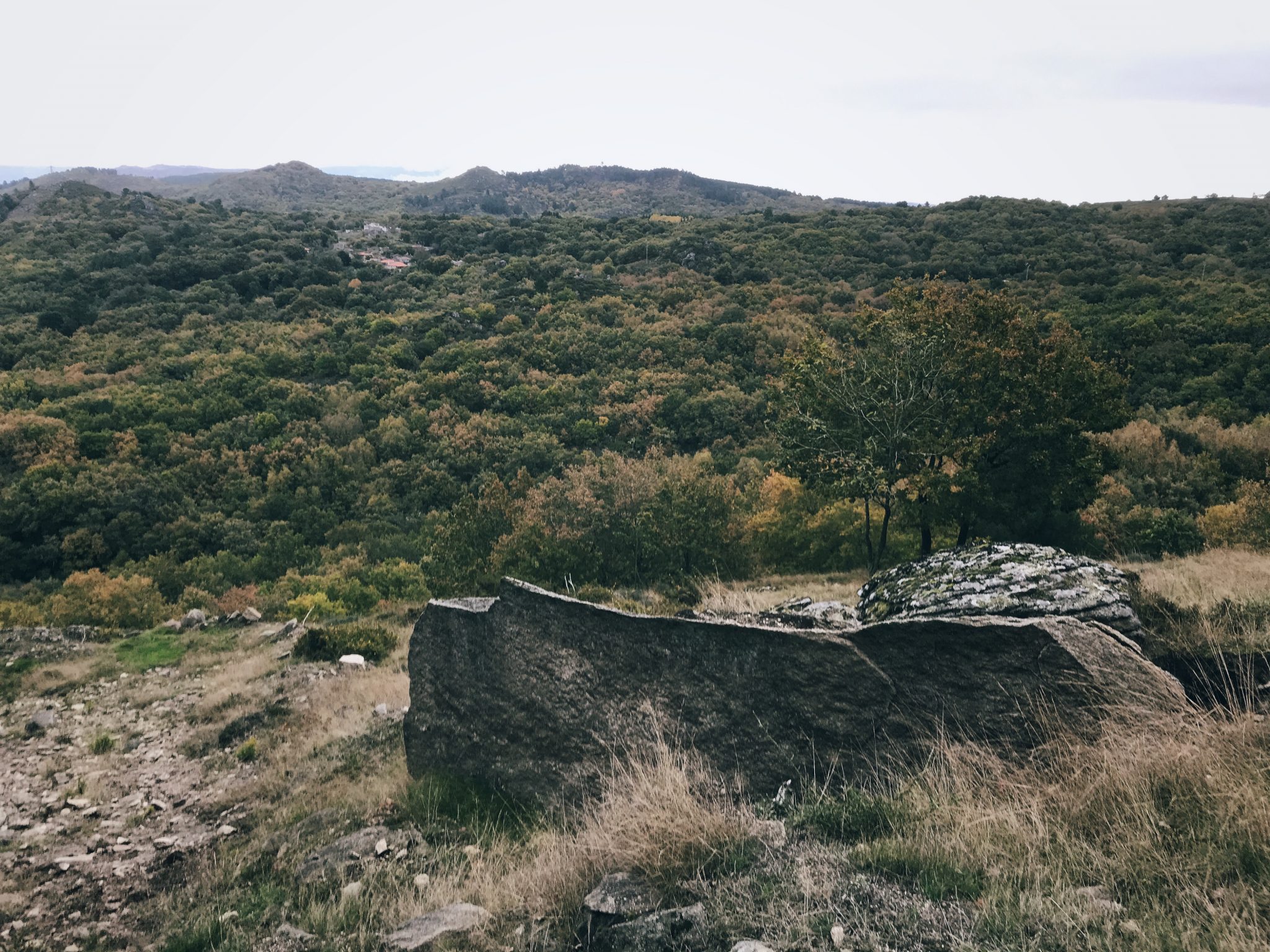
This morning, I’m thinking about Fernando Pessoa (or Alberto Caeiro?)’s The Keeper of Sheep, VII:
From my village I see as much of the universe as can be seen
from the earth,
And so my village is as large as any town,
For I am the size of what I see
And not the size of my height…In the cities life is smaller
Than here in my house on top of this hill.
The big buildings of cities lock up the view,
They hide the horizon, pulling our gaze far away from the
open sky.
They make us small, for they take away all the vastness our
eyes can see,
And they make us poor, for our only wealth is seeing.
I went up the monte twice yesterday, once in the morning with Alqo to stretch our legs, and again in the afternoon before sunset with both Patricia and Alqo. Toward the top, there is a fork in the path. We’ve always turned right, which leads us a little bit further, past a grove of oak, and ultimately to the winding road we live on, further down the monte.
Instead, we turned left. With my new eyeglasses, I can see much clearer (my prescription doubled since the last time I changed them, which was far too long ago). And the view that awaited us when we reached the actual top was spectacular.
We could see the other forest path that we take often, that leads past an isolated goat farm with two very protective dogs, past the heavily-shaded area where Alqo ran off to chase a deer a few days ago after sunset and left us a little distraught and searching for him in the dark for what felt like an eternity, and towards another village, A Aira Vella (pop. 6) that we walked to, meeting only an older woman and three dogs. We could see the rain in the distance and a section the autovía. Some of the trees are turning a faint yellow and brown, adding to the autumnal feeling.
I remembered Pessoa and specifically The Keeper of Sheep, how I was able to share him with a fellow Peace Corps friend, how his translated poetry found me at the time I needed him, how I used read him on the veranda in my small village in Sierra Leone, and our short life in an apartment in downtown Cologne; the constricted vision, and how my walks with Alqo were confined to a city block.
All of it was written in some sense, necessary to have this moment of pure gratitude up there of where we are now, what we do, and who we aspire to be.
I’ll hold on to this feeling for the day.